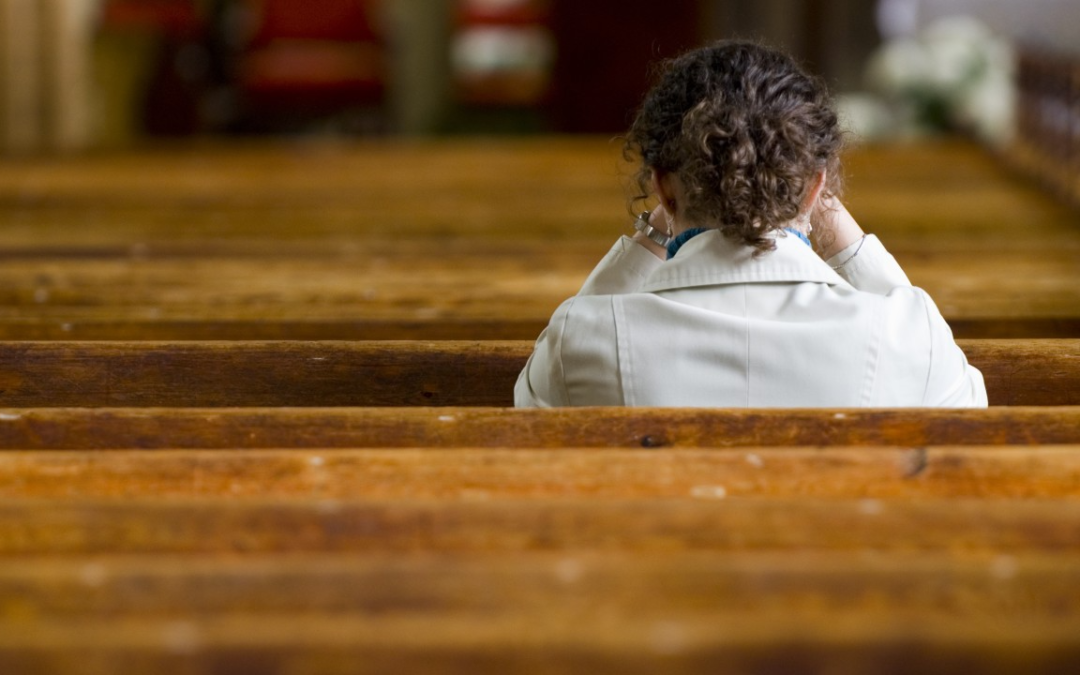In a recent article in The Irish Independent[1] the retired Archbishop of Dublin, Dr Diarmuid Martin remarked that he was never prepared for celibacy or singleness; his comment caught my attention causing me to think about my own experience. My early faith journey in the 1970s began with a crowd of single people deeply committed to following Jesus but as the years passed, our discipleship journeys diverged. Engagements and marriage mapped out new territory for everybody; those making lifelong commitments were instructed in marriage but there was no schooling for the single life except through the experience of it. For me though, being single felt like a normal way to follow Jesus.
Much later, I realised that being ‘single’ is generally limited the one’s marital status which perpetuates the idea that singleness is a lack of something. The “why aren’t you married yet?” question was often code for ‘something must be wrong with you’. This societal burdening can also be compounded by ecclesial pressures making church tough places for single people. Anti-singleness messages can saturate the air, they are usually subtle and unintended but single people hear them loud and clear; thoughtfulness and sensitivity are required to avoid elevating the nuclear family as the ”norm”.
Interestingly Jesus had much to say about the subject. Facing a question about divorce, he upended the social order by introducing the rigorous standard of celibacy. Rather than being the burden of the few, Jesus offered ‘singleness’ as an honourable and normative calling. When he invited some to “live like eunuchs for the sake of the kingdom” (Matthew 19:12) Jesus legitimised those who would engage in Kingdom work with single-minded focus.
It is crucial to note the context framing vocational singleness. It hinged on the vision of a coming Kingdom where marital state is immaterial “For in the resurrection neither do men marry nor are women given in marriage, but they are like angels in heaven [who do not marry nor produce children]” (Matthew 22:30). Jesus indicated that this call to be single was possible but needed to be contained by this particular vision of God’s inclusive community. Paul also hinted that the presence of those who are single in the body of Christ, act as a healthy challenge to those who are married; they are not to possessively cling to their biological family (1 Corinthians 7: 29-30). I wonder if some of this understanding is being lost through a poverty of teaching and the rise of individualism that is skewing faith perspectives of community.
In light of the growing number of single people in our churches whether through bereavement or divorce, or in response to the epidemic[2] of loneliness in Northern Ireland (see Dr John Kyle’s talk on The Scourge of Loneliness), is the time right for transformative conversations about singleness, celibacy and the power of community?
If it is, what could we talk about?
A good starting point could be for churches to reach out to the meaningful minority of Christians who have given up some of the world’s most coveted experiences to serve God in a different way.
Could we talk about the church honouring and teaching singleness again as a legitimate calling, and commend those who serve God with undivided attention?
Could we teach people celibacy learning from those who have faithfully honoured the church’s teaching?
Could we initiate a singleness preparation course to match that, which is done for those engaged, or celebrated singleness with all of the pomp and circumstance we give to weddings?
Could we do more together to help those who want to be married, to find their life partners?
In truth, I do not know if any of the above would make a difference to those who have not chosen singleness, nor those who are “unintentionally” single because of a painful life event. What I do know is that the married majority needs to share some responsibility for nudging the conversation forward and hopefully sooner rather than later.
Lynda Gould is the Project Co-ordinator for Faith Engagement in NICVA, and a former staff member in ECONI.
Please note that the statements and views expressed in this article of those of the author and do not necessarily represent those of Contemporary Christianity.


Lynda – thank you for this very thoughtful and challenging article.
Good article Linda, hope all is well with you! 🤓
This makes for interesting and thought-provoking reading, Lynda. You’ve an authentic voice on this subject.
Linda, You have raised a very important issue and one which the Church needs to grasp. The undue elevation of the married couple with two children as the norm is hurting many people. Jim Campbell
I agree with Niall and Ivan.
Thoughtful and challenging indeed
Where do we go from here?
There was a project on this issue in England, probably sponsored by the Evangelical Alliance. I remember attending one or two gatherings of single Christians in ministry where we talked over our experiences and recognised that there were a great variety of circumstances. I don’t know if any papers or reports were issued and I am not sure if it was the late 70s or sometime in the 80s when it took place. It helped me form my own narrative about my singleness and how it relates to my sexuality but the context has changed a great deal since those days. I am also aware that people with a more high church background have formed some sort of association basic on monastic models called something like ‘a single and consecrated life’.
Excellent article Lynda. You and I had discussions around this over 3 decades ago, when you and I were one of the very few willing to discuss the taboo subject of sexuality with church youth groups etc. keep ‘er lit!
It certainly made me stop and think – good article